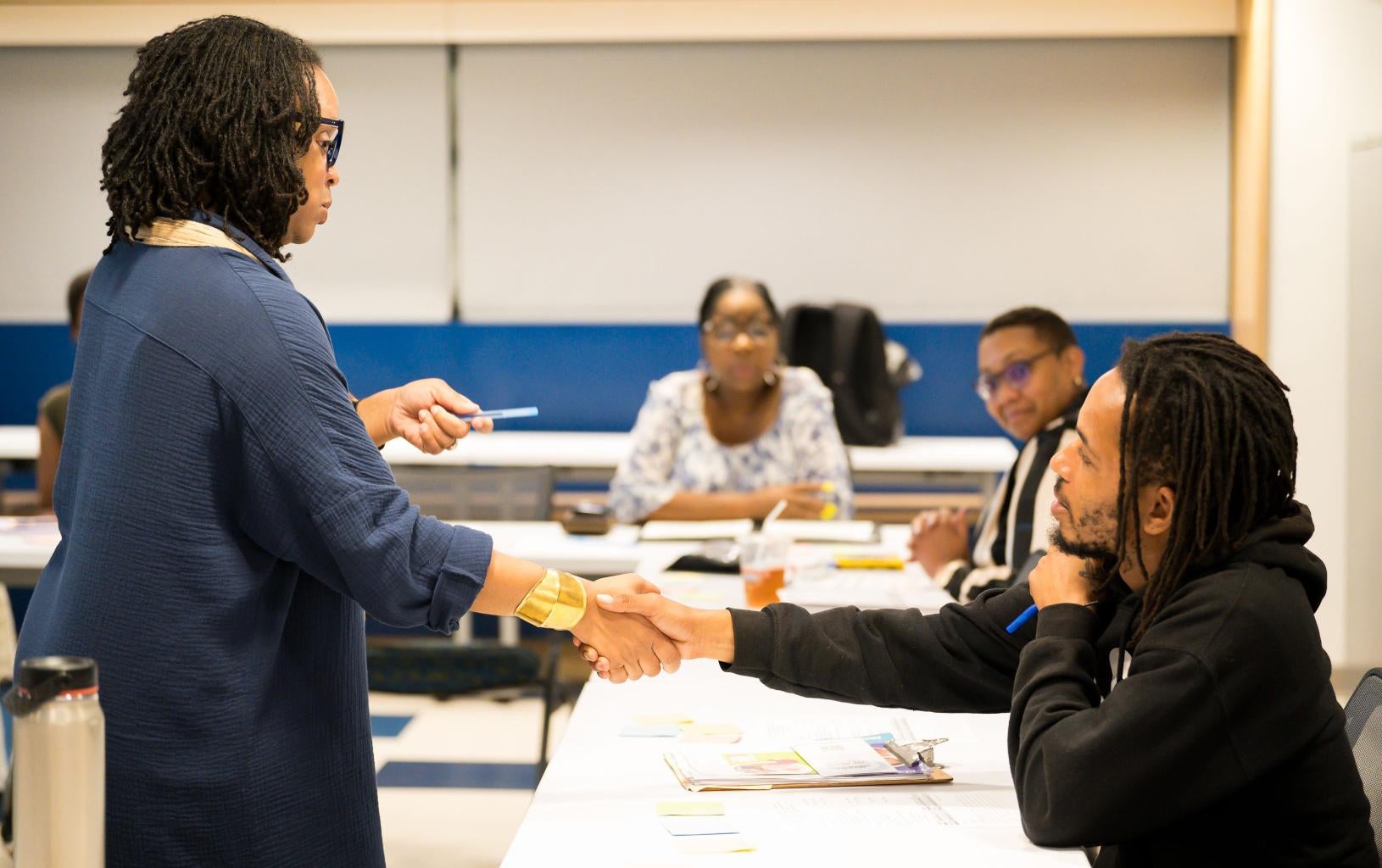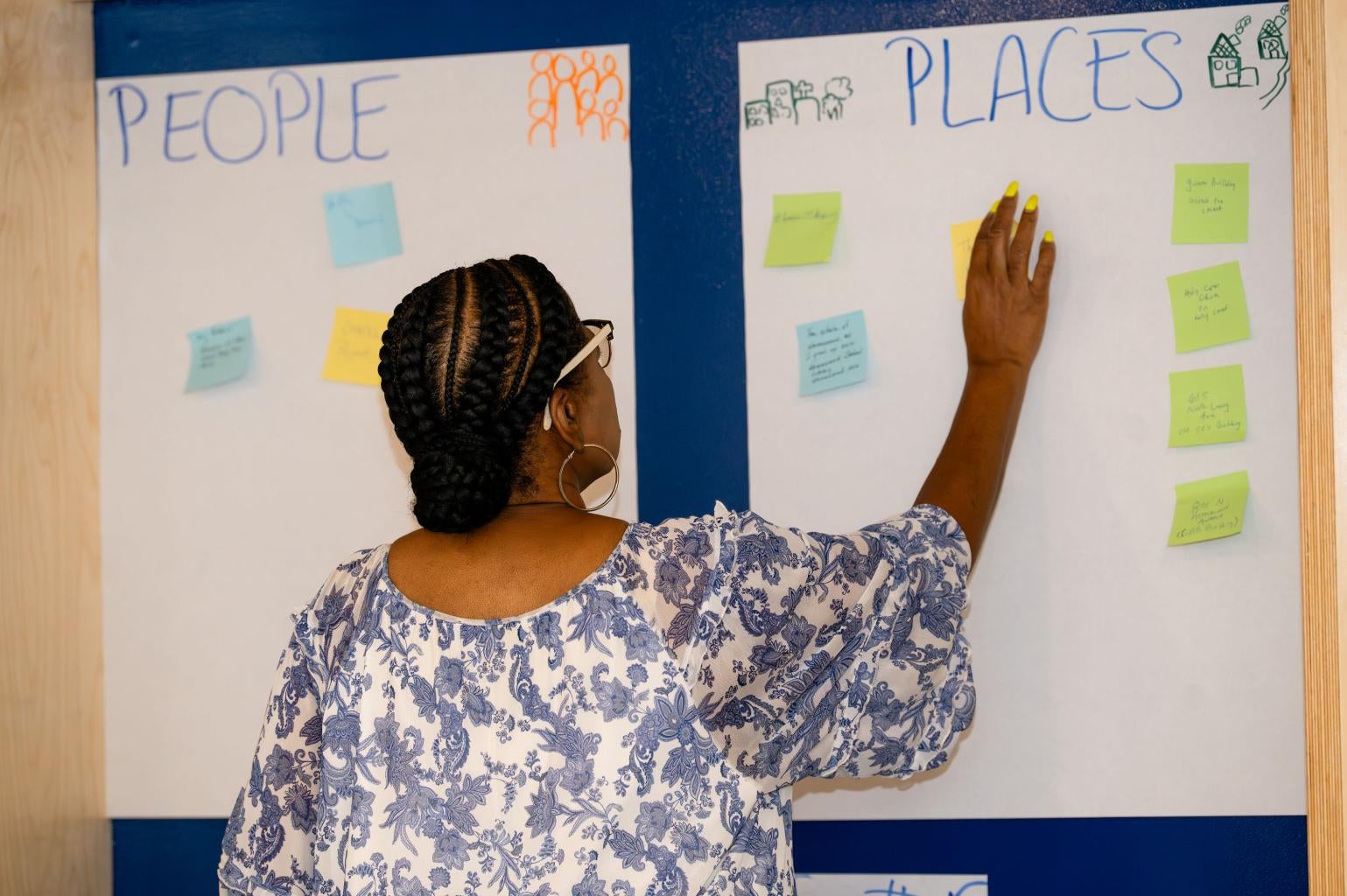This fall, the Community and Racial Equity Leadership (CREL) Fellowship Program kicked off its orientation event at the Homewood Community Engagement Center, marking the start of a year-long journey in community engagement and social justice leadership for its student participants. Led by Dr. Aliya Durham, the fellowship aims to provide graduate students with hands-on learning experiences while addressing critical social issues related to race and equity.
 The orientation was an afternoon filled with community sourced food, warm fellowship, creative activities, reflective and skill-building presentations. In addition to introducing the fellows to the program and each other, the event acknowledged the invaluable contributions of partner agencies, including Bible Center Church and the CHAPEL Project, the Homewood Community Engagement Center, Operation Better Block, Inc, the YWCA Greater Pittsburgh, and the Center on Race and Social Problems (CRSP).
The orientation was an afternoon filled with community sourced food, warm fellowship, creative activities, reflective and skill-building presentations. In addition to introducing the fellows to the program and each other, the event acknowledged the invaluable contributions of partner agencies, including Bible Center Church and the CHAPEL Project, the Homewood Community Engagement Center, Operation Better Block, Inc, the YWCA Greater Pittsburgh, and the Center on Race and Social Problems (CRSP).
“The CREL orientation was a real crescendo of collaborative work” said Dr. Aliya Durham, Assistant Professor at the School of Social Work. “Social work alumni and community partners helped us frame the fellowship model just about every step of the way.”
The CREL Fellowship provides graduate students with the opportunity to learn through community-engaged programs, including applied research projects that explore how factors such as race, ethnicity, and location influence the quality of life in America. Fellows will work directly with local nonprofits and community leaders to gain practical experience in addressing racial and social justice issues.
Linda Kent, Director of the CHAPEL (Community Health Assistance Programming and Engagement Leadership) Project, emphasized the importance of collaboration, stating, “Pitt students are number one.” The CHAPEL Project is a key community partner, dedicated to creating safe spaces for positive mental health and community well-being through a community-driven approach.
The fellowship operates on five key pillars, including field learning experiences, critical reflection, skill-building seminars, and interprofessional collaboration. These pillars, along with mentorship from faculty and community partners, are designed to accelerate learning and help students develop a professional praxis rooted in cultural humility. 
Through the program, fellows will deepen their understanding of race and social problems, develop valuable practitioner and research skills, and engage in interprofessional collaboration. The CREL Fellowship also emphasizes the importance of policy engagement and the promotion of social justice, encouraging fellows to contribute to creating a more equitable society. With a focus on racial equity and social justice, the CREL Fellowship aims to prepare students for careers in macro practice settings, equipping them with the tools to address root causes of social problems and advocate for meaningful change. As they work closely with community organizations, fellows will have the opportunity to apply their learning to real-world issues, fostering relationships with mentors and leaders in the field.
The CREL Fellowship’s first cohort will participate in a range of community-engaged projects, from policy briefings to research collaborations, contributing to the ongoing work to address racial and social inequities in the Pittsburgh community.